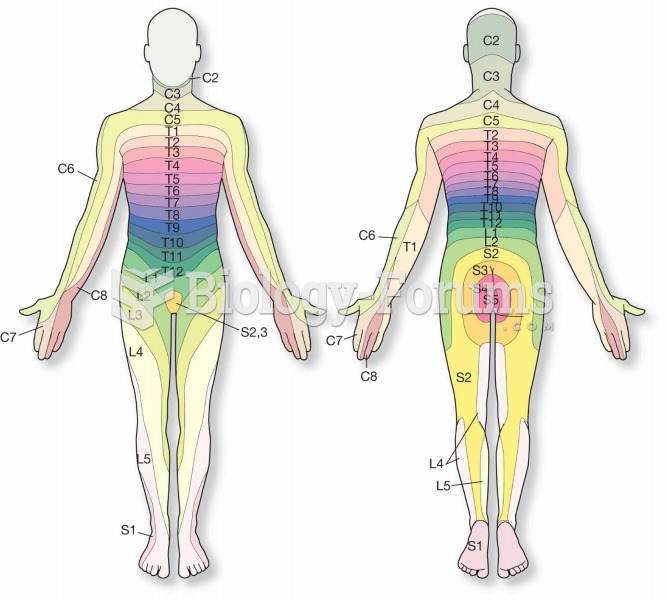|
|
|
Blood is approximately twice as thick as water because of the cells and other components found in it.
A cataract is a clouding of the eyes' natural lens. As we age, some clouding of the lens may occur. The first sign of a cataract is usually blurry vision. Although glasses and other visual aids may at first help a person with cataracts, surgery may become inevitable. Cataract surgery is very successful in restoring vision, and it is the most frequently performed surgery in the United States.
The U.S. Preventive Services Task Force recommends that all women age 65 years of age or older should be screened with bone densitometry.
Cancer has been around as long as humankind, but only in the second half of the twentieth century did the number of cancer cases explode.
Illicit drug use costs the United States approximately $181 billion every year.







